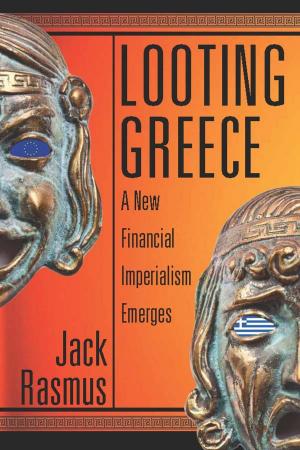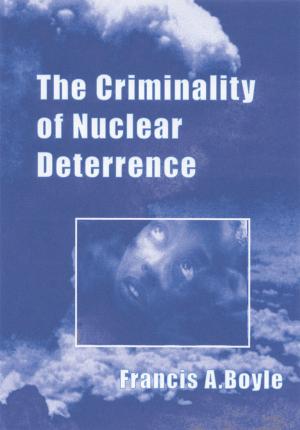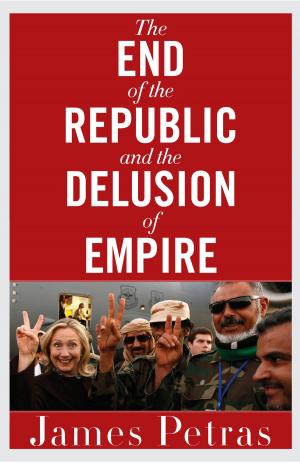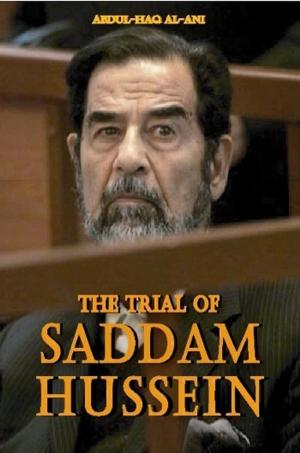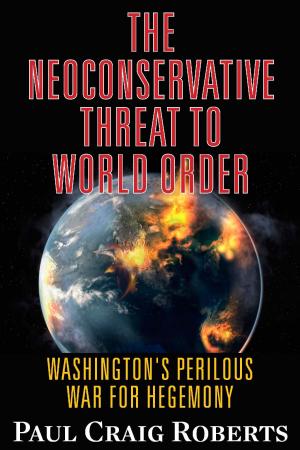Genocide in Iraq
The Case Against the UN Security Council and Member States
Nonfiction, Reference & Language, Law, International| Author: | Abdul-Haq al-Ani | ISBN: | 9780985335366 |
| Publisher: | Clarity Press | Publication: | January 5, 2010 |
| Imprint: | Clarity Press | Language: | English |
| Author: | Abdul-Haq al-Ani |
| ISBN: | 9780985335366 |
| Publisher: | Clarity Press |
| Publication: | January 5, 2010 |
| Imprint: | Clarity Press |
| Language: | English |
Imposing sanctions on Iraq was one of the most heinous of crimes committed in the 20th century. Yet it has received little attention in the Anglo-American world. Despite the calamitous destruction resulting from the sanctions, no serious attempts by legal professionals, academics or philosophers have been undertaken to address the full scope of the immorality and illegality of such a criminal and unprecedented mass punishment. Genocide in Iraq offers a comprehensive coverage of Iraq’s politics, its building, its destruction through aggression and sanctions, and an analysis of the legality of these sanctions from the point of view of international laws and human rights laws. It presents a detailed policy analysis indicating how, under Ba’ath rule, Iraq had risen to become-be fore 12 years of total sanctions were globally enforced-the most progressive and developed Arab nation in the Middle East. It then contrasts that rising nation to the devastated remains left in the aftermath of sanctions, which nonetheless was yet to endure, in 2003, the full force of the American “shock and awe†invasion. The book explains why, in modern times, imperialist powers felt it was necessary to occupy Baghdad. It also puts forward the uniqueness of Iraq as at the heart of both Sunni and Shi’a theology, arguing it was this very centrality of Iraq, which far outweighs the significance of Arabia in socio-economic, religious and geostrategic dimensions, that at the same time makes Iraq a target. It details the building of Iraq by the Ba’ath regime, part of which was done with remarkable speed, putting to rest the argument that other countries in the area were developed at a similar pace. It also details the devastation of Iraq by 2003 after 12 years of sanctions-a devastation so dreadful that by the UN’s own accounting, some 500,000 child deaths were due to it; a devastation so pervasive and overwhelming that two of the UN’s own key administrators of the sanctions program, Dennis Halliday and Hans von Sponeck, resigned in protest.
Imposing sanctions on Iraq was one of the most heinous of crimes committed in the 20th century. Yet it has received little attention in the Anglo-American world. Despite the calamitous destruction resulting from the sanctions, no serious attempts by legal professionals, academics or philosophers have been undertaken to address the full scope of the immorality and illegality of such a criminal and unprecedented mass punishment. Genocide in Iraq offers a comprehensive coverage of Iraq’s politics, its building, its destruction through aggression and sanctions, and an analysis of the legality of these sanctions from the point of view of international laws and human rights laws. It presents a detailed policy analysis indicating how, under Ba’ath rule, Iraq had risen to become-be fore 12 years of total sanctions were globally enforced-the most progressive and developed Arab nation in the Middle East. It then contrasts that rising nation to the devastated remains left in the aftermath of sanctions, which nonetheless was yet to endure, in 2003, the full force of the American “shock and awe†invasion. The book explains why, in modern times, imperialist powers felt it was necessary to occupy Baghdad. It also puts forward the uniqueness of Iraq as at the heart of both Sunni and Shi’a theology, arguing it was this very centrality of Iraq, which far outweighs the significance of Arabia in socio-economic, religious and geostrategic dimensions, that at the same time makes Iraq a target. It details the building of Iraq by the Ba’ath regime, part of which was done with remarkable speed, putting to rest the argument that other countries in the area were developed at a similar pace. It also details the devastation of Iraq by 2003 after 12 years of sanctions-a devastation so dreadful that by the UN’s own accounting, some 500,000 child deaths were due to it; a devastation so pervasive and overwhelming that two of the UN’s own key administrators of the sanctions program, Dennis Halliday and Hans von Sponeck, resigned in protest.

